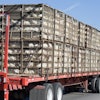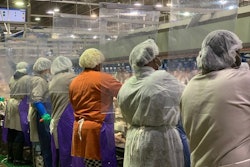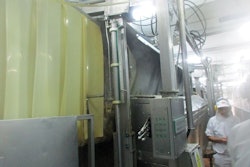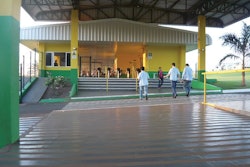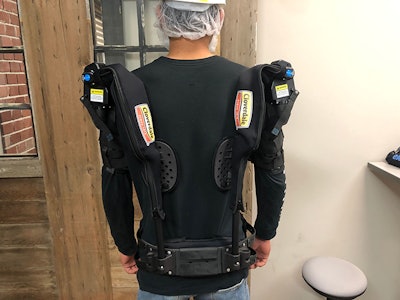
Exoskeleton technology could help minimize workplace injuries and worker fatigue at poultry processing plants.
“In the meat processing industry, it’s very labor-intensive,” said Michael Pratt, Vice President Sales and Business Development, Ekso Bionics. Exoskeletons could be a “solution for the wear and tear and potential soft tissue injuries” experienced by poultry processing workers, he added.
Increased strength and endurance
Exoskeletons are lightweight wearable robotics designed to increase strength and endurance. Initially, exoskeleton technology was designed for use in hospitals to help patients rehabilitate after a stroke or a spinal cord injury, although exoskeletons have also been developed for soldiers to decrease fatigue and increase productivity on the battlefield.
For industry applications, like in poultry processing, lightweight exoskeletons can assist with shoulder flexion-extension movements, reducing worker fatigue and decreasing the likelihood of musculoskeletal disorders (MSDs) in the workplace through ergonomics.
Ergonomics can be defined as a working environment where an employee can perform his or her function comfortably and efficiently with the least amount of fatigue. Work-related MSDs are among the most frequently reported causes of lost or restricted work time, accounting to one-third of all worker injury and illness cases, according to the Bureau of Labor Statistics (BLS).
“Fatigue is a well-known established problem when the work is very labor-intensive and repetitive. If we think of fatigue as a bullseye, we know that what correlates to fatigue is soft-tissue injury, morale and absenteeism,” Pratt explained.
“The other benefit of exoskeletons is that they can help drive predictable productivity. When things become challenging or a worker becomes fatigued, sometimes the productivity and quality of work can taper off. If we can mitigate fatigue, we know that we can actually help organizations in health and safety, employee morale, retention, absenteeism and, ultimately, productivity.”
The technology is currently being piloted in food production by Cloverdale Foods Company, a fourth generation, family-owned meat company based in Mandan, North Dakota.
Like what you just read? Sign up now for free to receive the Poultry Future Newsletter.


